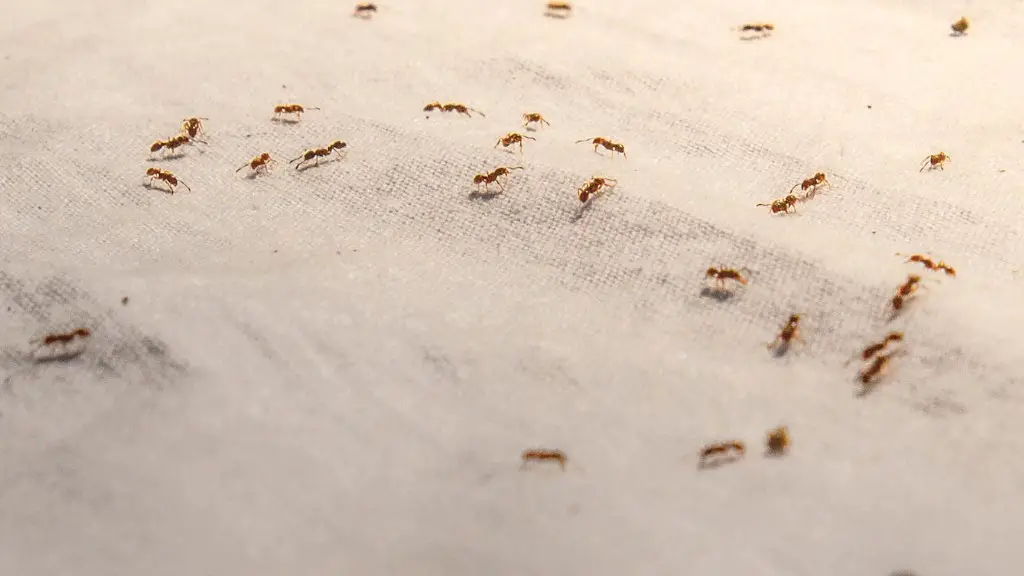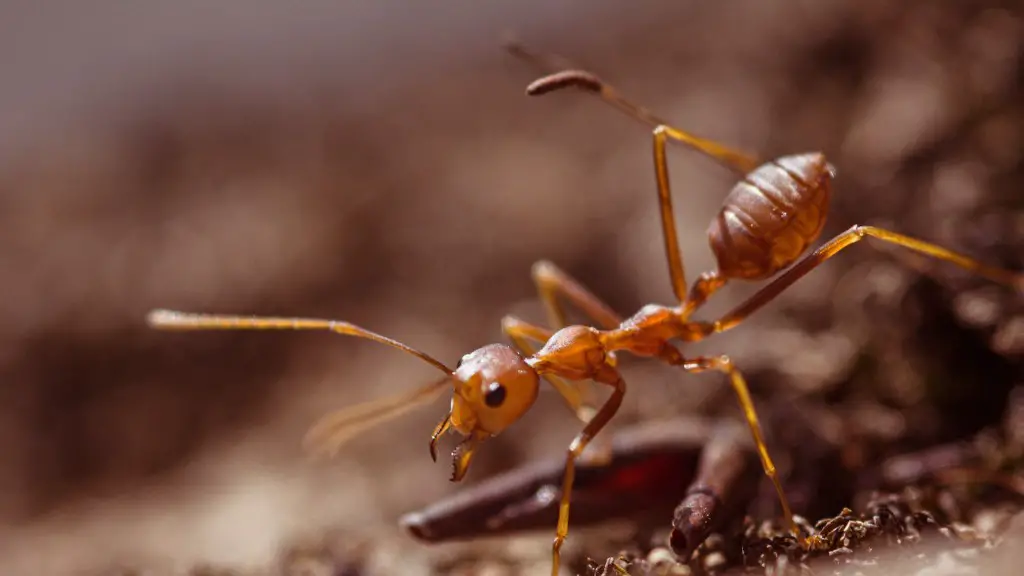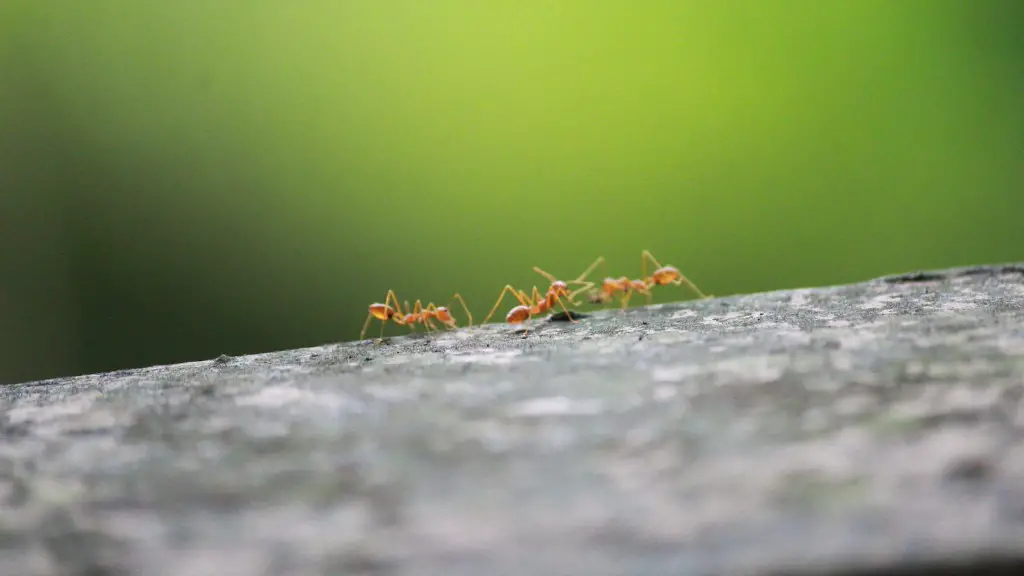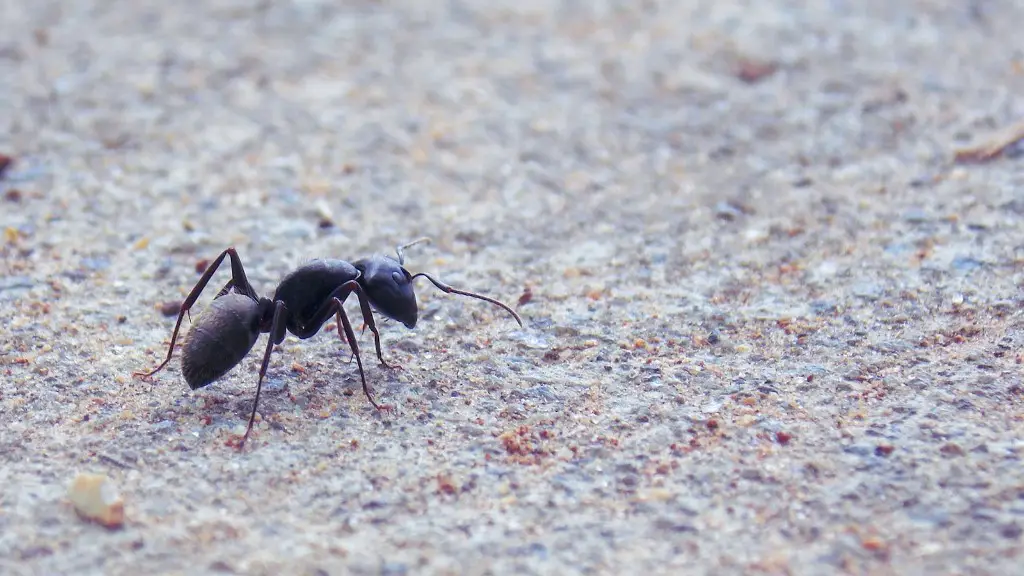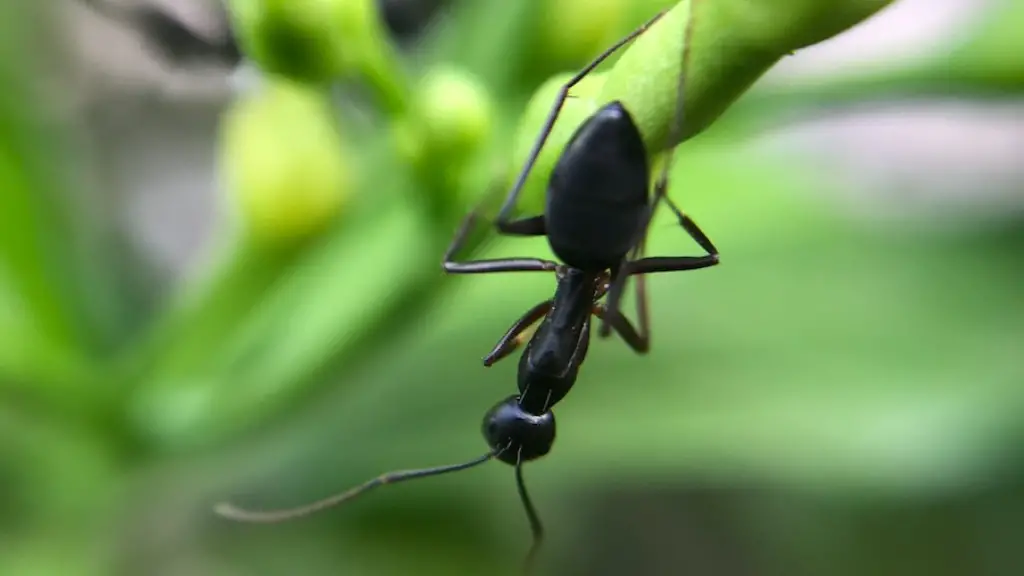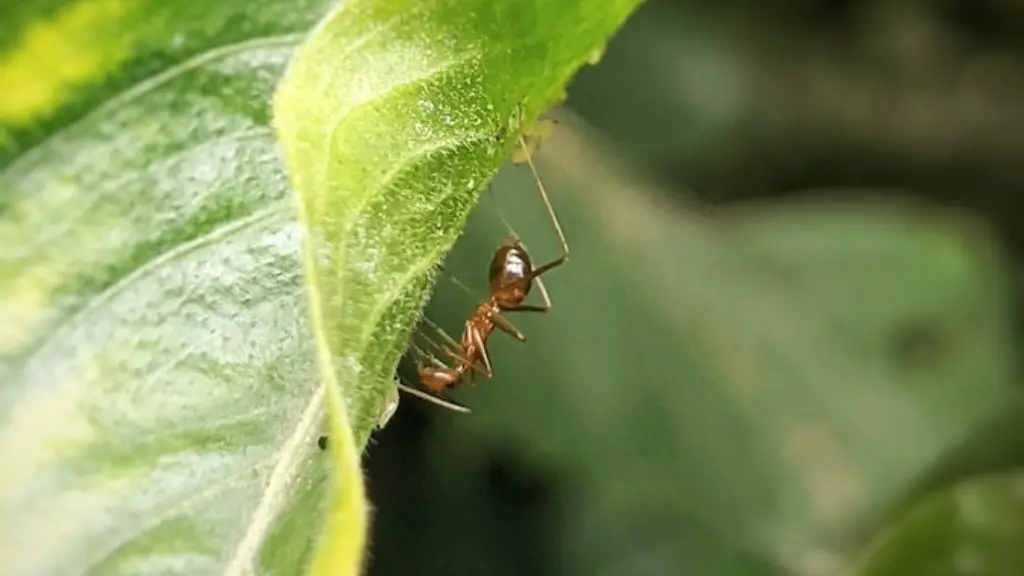Fire ants are an unpleasant surprise for any homeowner, but they don’t have to be a permanent problem. Many people believe that getting fire ants out of the house must be done by professionals, but with the right preventative measures and proactive solutions, this pest can be managed without calling an exterminator.
The first step in eliminating fire ants from your home is to identify where they’re entering. Commonly, fire ants will come in through tiny cracks or other openings in the exterior of the house. Make sure that you fill any of these access points with caulking to prevent them from entering. You’ll also need to make sure that any existing nests on the exterior are eliminated.
If you’re able to locate a fire ant nest inside your house, it is best to usher them out without resorting to chemical killers. To do this, you need to locate the nest and look for areas in which the ants are entering and exiting. As they begin to abandon the nest, you can find out where they’re retreating and then fill the holes they’ve made with dust or spray them with soapy water. This simple method is the best way to naturally get rid of fire ants.
If natural methods of removal don’t work, you can also opt for chemical pesticides. These come in various forms and can be purchased from most home improvement stores. Make sure to read the instructions first as pesticide dosages vary from product to product and you’ll want to use the correct amount. Make sure to apply the pesticide in the area where the ants are currently living and take extra precautions by wearing protective gear.
Once removed, there are still steps to take to prevent ants from coming back. This involves sealing up any entry points on the outside and disposing of any possible sources of food or water that can attract the ants. Make sure to clean and sweep regularly. If possible, grow or place ant repellent plants like garlic and mint, around your windows or entrances.
In some cases, you may have to contact an exterminator if the infestation has become too large. Exterminators are able to use methods and treatments which may not be available to the average homeowner. However, these methods can be more costly and can be wasteful if the infestation isn’t severe.
Overall, dealing with fire ants doesn’t have to be a headache. Utilising natural methods and preventatives can help keep them from entering your home and keep you from having to call an exterminator. Being aware of any potential issues and regularly inspecting your home can also go a long way in preventing fire ant infestations.
Natural Remedies
When looking at natural remedies, it is important to understand the behavior of fire ants and how they respond to different deterrents. For some, the most cost effective method will be flooding the ants with boiling water to end their activity, for others, it is creating a barrier of corn flour, soap, and lemon juice to limit the ants access. There are also a variety of insecticides on the market such as carbaryl, deltamethrin, cypermethrin and pyrethrin, all of which can help to alleviate an infestation in an area. Natural insecticides should be applied to the environment rather than targeting individual ants, as this will help to prevent any further colonies from settling and increasing the size of the infestation.
Scrubbing your floors and workspaces with soap and water Or products like Borax and vinegar can also help with the removal of fire ants. As well as preventing them from entering through cracks and crevices, regular use of these cleaning products can help to suppress the ants and keep them away from your home.
An additional natural remedy that can help with getting fire ants out of the house is to use a liquid ant bait. This is similar to an ant trap in that it speeds up their activity and increases the mortality rate of the ant colony. Liquid ant baits typically contain carbohydrates and small amounts of pesticide, so it is important to keep them out of reach from children and pets.
Overall, natural remedies can be consistent and cost effective ways to get the fire ants out of your home, but it is important to remember that completely eradicating the entire colony is not a simple task. Being mindful of the types of pests crawling around your home can also help to prevent any further infestations.
Seal Entry Points
To ensure that the fire ant infestation does not return, it is essential to identify and seal any entry points which could be allowing the ants to enter your home. These points could include any small spaces or crevices between the walls and foundation, any open windows or doors, or any exterior cracks or other openings in the exterior of the house. By making sure that these entry points are well-sealed, you are preventing any further activity from the ants, essentially starving them and preventing them from returning.
Sealing entry points will likely require some caulking and sealing materials. When shopping for these materials, inspect the product to make sure that it is ant-resistant and safe to use on the home. In extreme cases, where the infestation is severe, or if you are unsure of what needs to be done to seal the entry points, it is recommended to contact an exterminator or specialist to help gain further insight on the task.
Along with sealing the entry points, it is also important to regularly inspect the home for other potential entry points, or to ensure that the existing ones are still in-tact. By doing this, you not only prevent the fire ants from entering, but you can also spot any other types of pests which may be a threat to your home.
Keep Food and Water Away
Another key part of protecting your home from fire ants is to remove any potential sources of food or water that could attract them. To do this you need to be mindful when handling food and make sure any scraps which could be attractive to ants are immediately disposed of. Additionally, check for any water sources that could be near your home, such as a damp and dark area in the garden. This can be a prime spot for fire ants to set up shop, so be on the lookout and make sure to dispose of any standing pools of water.
If there is water access, and fire ants have nested near the home, one of the best methods to reduce their activity is to fill the area with oil. The oil works as a sealant and prevents the ants from entering the house through the access points, as well as creating a barrier which stops the moistening of their nest. Additionally, the oils will also stop them from digging and tunneling, reducing the chances of their activity from spreading.
Another way to keep food and water away from fire ants is to introduce natural repellents and deterrents around the home. Common plants such as garlic, spearmint, and tansy emit scents that repel a variety of insect pests, including fire ants. They can be grown around the perimeter of the home, or dried and placed in the areas where the fire ants are likely to nest.
Regular Cleaning and Maintenance
Regularly cleaning the home, including sweeping and mopping, can also help to keep fire ants away. Ants are attracted to debris and dirt and if they’re in the home they’ll be looking for food sources and food scraps. By keeping the home clean and dust-free, the fire ants have less reason and opportunity to stay, making it less desirable to them.
With that being said, it is also important to regularly inspect your home and garden for ant nests or any potential entry points. By doing this at least once a month, you can stay one step ahead and spot infestations before they become a major issue. You’ll also be able to monitor the situation and catch it any new nesting spots.
Finally, taking preventive steps such as spraying a barrier of insecticide can be a cost effective and straightforward solution. Spray the perimeter of your home in order to create a barrier between it and the possible nesting areas. Make sure to use a product which is safe to use on the home and be cautious when handling and applying the insecticide.
